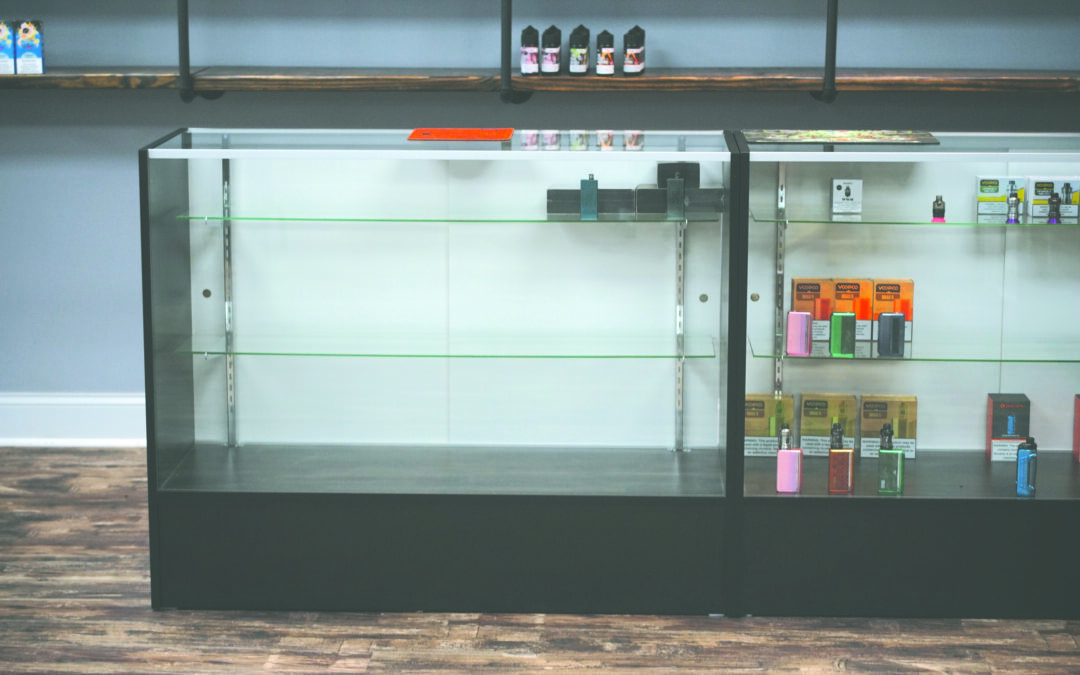BY STEVEN STIEFEL
FOR THE OBSERVER
LEE COUNTY — A month after Alabama lawmakers banned THC and CBD products from retail stores, local retailers say the industry faces devastation.
Gov. Kay Ivey signed legislation that taxes, regulates and restricts the sale of consumable products containing hemp-derived THC. The law requires retailers to obtain a license from the Alabama Alcoholic Beverage Control Board and limits sales to stores serving customers 21 and older. It also bans smokable hemp. As of July 1, possession or sale of flower, pre-rolls, concentrates, dabs or inhalables became Class C felonies, punishable by one to 10 years in prison.
Bradley Haddon, owner of Top Shelf Alternatives on Geneva Street in Opelika, said the law forced him to lay off all but one employee.
“The law completely collapsed the industry in less than three weeks,” Haddon said. “We’ve lost about $120,000 — 91% of our sales. We averaged 119 customers a day, but now we see nine. People fear going to prison for something that’s still federally legal.”
Under federal law, hemp-derived THC gummies remain legal if they contain less than 0.3% Delta-9 THC, but state laws vary widely. Haddon said Alabama’s ban stripped veterans, cancer patients and others of a safe, therapeutic alternative to opioids and alcohol. “I’m in contact with 120 business owners,” he said. “Over 10% have already fired employees and left the state. One friend with five stores and 40 employees shut it all down and moved to Florida.”
Haddon said he plans to meet with law enforcement this week to review his options. Meanwhile, he remains federally compliant and determined to operate legally.
“The legal hemp cannabis industry generates $29 billion annually in the U.S., and Alabama accounts for $9 billion of that,” he said. “A third of the entire industry in the state of Alabama — that is the Alabama people screaming for cannabis. That is people who are tired of opiates.”
Haddon said the city of Opelika is also losing sales tax revenue as a result of the new law. He said he paid $14,000 in June but only about $1,200 in July.
“Imagine how business owners feel who took COVID relief funds to open cannabis shops, and now the government’s, like, ‘Hey, have fun paying those bills back because we outlawed your businesses overnight, even though your product’s still federally legal,’” Haddon said. “[Attorney General Steve Marshall] didn’t even give us the full 30 days to become compliant.”
Haddon criticized the law’s penalties.
“I’d get less jail time if I sold fentanyl than if I sold a legal pre-roll that’s been third-party tested,” he said. “Three weeks ago, it was legal. Now I could get 10 years in jail. If I sold illegal cannabis, it would be a misdemeanor.”
He said lawmakers pushed the bill to eliminate competition ahead of Alabama’s planned state-controlled medical cannabis program, and that he believes the program will remain highly restrictive and profitable for the state, forcing patients to use limited forms such as pills or cubes.
“This law has ravaged us,” Haddon said. “They can conduct unsolicited warrantless searches and seizures. That’s crazy! It doesn’t matter what we think the bill means — it matters what the state says. Individuals are not better off. Businesses are not better off. Industry is not better off. Nobody is better off after this legislative season except the government.”
Haddon accused lawmakers of having ties to opioid-focused pain clinics and alcohol vendors who saw liquor sales drop 40% since THC products entered the market.
“I don’t understand how lawmakers can write legislation to remove competition,” he said. “Martha Stewart went to prison for insider trading involving $28,000. This is worse.”
Haddon also called out governor, who reportedly has a medical card in Florida.
“I’ve read she uses gummies for pain. What kind of hypocrisy is this? Elites keep all the power while the rest of us lose our freedom of choice,” he said.
Despite setbacks, Haddon said he will remain committed to the products he believes saved him from severe depression.
“I feel so passionately about these products because of the good I’ve seen them do,” he said. “This is the hill I choose to die on. I will go to my grave preaching the benefits of a little green plant because it’s saved my life personally. I hope the soccer mom trying to survive, the veteran with PTSD, the wounded officer, the cancer patient — I hope they all get a voice. My wife and I put everything into this. We have no back up. It’s this or a soup kitchen for us. We might survive the year, but then we’re also facing an additional 10% to 12% tax on what’s left.”


